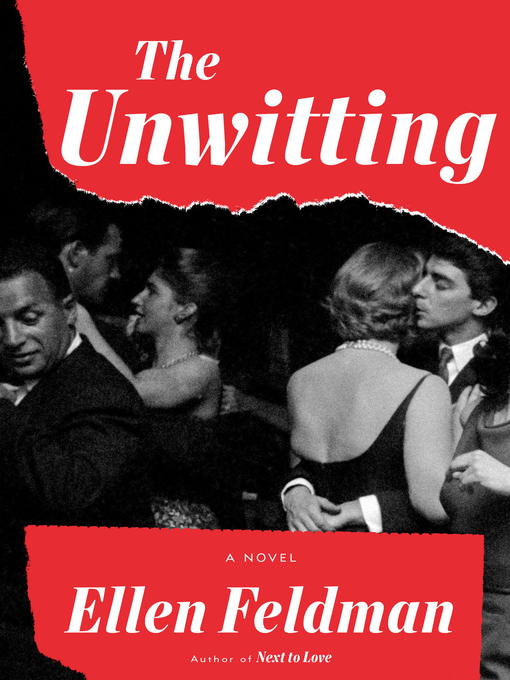
The Unwitting
A Novel
کتاب های مرتبط
- اطلاعات
- نقد و بررسی
- دیدگاه کاربران
نقد و بررسی

February 17, 2014
The witch hunts of McCarthyism and the Cold War provide an appropriate backdrop for the this intelligent but overly detached novel from Feldman (Next to Love) about the betrayals and secrets of a marriage. Cornelia and Charlie Benjamin are part of New York City’s liberal intelligentsia: he edits Compass, a left-wing magazine in which her writing often appears. But when Charlie is killed in an apparent mugging on the day of John F. Kennedy’s assassination, Cornelia learns he was living a double life. She narrates the story of their relationship in retrospect, hinting at but not disclosing Charlie’s secret, relying on clumsy foreshadowing to supply tension: “Looking back at it now...”; “Later I found out...”; “We should have known…” The novel moves from 1948 to 1971, and its impressive scope keeps the story emotionally distant—readers familiar with the era may appreciate the many high points mentioned, but Cornelia often seems to be recounting historical events rather than personal ones, telling her own story with the distance of a historian rather than the involvement of a participant. Still, there are poignant moments when she considers the way both personal and political memories shift with revealed knowledge, comparing recollection and truth to a reversible coat: “If I wore it on one side, it looked a certain way. If I turned it inside out, it was an entirely different animal.”

March 15, 2014
A conspiracy-theory novel about spies, lies and personal loyalty set within the insulated world of left-liberal New York intellectuals during the Cold War era. Feldman (Next To Love, 2011) begins her novel on the day Kennedy was shot in 1963, tying narrator Nell's personal marital drama to national events. Something bad has happened to Nell's husband, Charlie, but before revealing exactly what that something is, Nell relives their relationship: The two meet in 1948 as college students (Barnard and Columbia), both attending on the GI Bill. From the beginning, Nell, who joined the military to escape a difficult home life, is more the leftist firebrand than Charlie, whose Jewish awareness of the Holocaust has strengthened his patriotism. After Charlie lands a job at the (fictional) magazine Compass, an avant-garde, anti-Stalinist, left-leaning intellectual journal not unlike Commentary or the Partisan Review, he and Nell marry. Before long, he becomes editor in chief; Nell becomes a staff writer. They rent a big apartment on the Upper West Side, send their daughter to private school, attend literary soirees with the likes of Mary McCarthy and Robert Lowell. While Nell pushes Charlie to be less timid as an editor, they survive the McCarthy era and subsequent Communist witch hunts only mildly scathed. They support civil rights; Charlie is the first to publish King's "Letter From a Birmingham Jail." By Kennedy's election, cracks have appeared within both their marriage and their intellectual circle. It's to Feldman's credit that until Nell jumps to the aftermath of the 1963 tragedy, readers will suspect without being sure which of several characters, including Charlie, are not exactly who they seem. Perhaps the strongest section of the novel is Charlie's journal, in which he struggles through moral dilemmas without Nell's penchant for self-righteousness. While the role of what Charlie calls "the left-wing Jewish intellectual mafia" during the Cold War remains fascinating (at least to liberal intellectuals), the schematic quality of Feldman's plot and characters limits the reader's engagement.
COPYRIGHT(2014) Kirkus Reviews, ALL RIGHTS RESERVED.

March 15, 2014
During the most feverish and frightening years of the Cold War, the thuggery, domestic oppression, and international ambitions of the Soviet Union were evident. Less evident, however, were the various American responses to the Soviet threat. In this gripping, meticulously researched historical novel, Feldman returns to these dangerous times and the troubling moral questions that arose in conjunction with the increasingly sinister activities of the CIA in its efforts to counteract the global aspirations of the Soviets. As the novel unfolds, Feldman's young, idealistic, and skillfully drawn protagonist, Nell, an investigative reporter who writes for a prestigious New York intellectual journal, the Compass, begins to uncover some of these unsavory criminal activities. It turns out that the Compass itself is funded by the CIA, and her husband, its editor, has been complicit with this arrangement. The novel examines the complex, shifting emotional landscape of Nell's marriage, along with her increasingly conflicted relationship with her country and her ideals. VERDICT A deep and disarming book about politics, human relationships, and love, from a writer renowned for her historical novels (Next to Love; Scottsboro; Lucy) that fans of literary fiction will enjoy. [See Prepub Alert, 11/3/13.]--Patrick Sullivan, Manchester Community Coll., CT
Copyright 2014 Library Journal, LLC Used with permission.

April 15, 2014
Functioning both as a complex portrait of marriage and a clear snapshot of a particularly paranoid time in American history, Feldman's latest novel (after Next to Love, 2011), set in the early sixties, takes on the Cold War. When liberal journalist Nell Benjamin is informed that her beloved husband has been murdered in a mugging, her bright, beautiful world is upended. The editor of a progressive magazine, Charlie had been her soul mate. But what she discovers about his work, and the shadowy corporation responsible for funding it, shatters her illusions about the man she thought she knew so well. Her grand love affair is now revealed to be based on keeping secrets, and her sense of betrayal runs deep. Unsure of how to tell her daughter and how to face her friends, Nell must come to terms with her own unwitting participation in the charade. Feldman intertwines the personal and the political while clearly drawing the cultural atmosphere of the early '60s, when definitions of patriotism were not so clear-cut and communism was a palpable threat.(Reprinted with permission of Booklist, copyright 2014, American Library Association.)

























دیدگاه کاربران